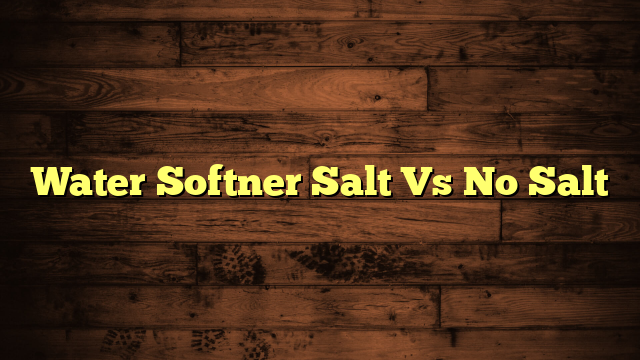Does Iron Filter System Last as Long as Water Softner?
Have you ever wondered if your iron filter system can stand the test of time as well as a water softener? While lifespan estimates suggest that water softeners might outlast iron filters, the reality is more complex. Factors like water quality, maintenance, and your household's specific needs play vital roles in determining how long each system truly lasts. So, which one should you trust for longevity, and what maintenance practices can maximize their efficiency?
Key Takeaways
- Iron filter systems typically last between 5 to 20 years, depending on usage and maintenance.
- Water softeners generally have a lifespan of 10 to 15 years, influenced by similar factors.
- High iron levels can shorten the lifespan of iron filters, while hard water strains water softeners.
- Regular maintenance is essential for both systems to ensure optimal performance and longevity.
- Costs and long-term savings differ, with iron filters often having lower maintenance expenses than water softeners.
Understanding Iron Filter Systems
When contemplating your home's water quality, understanding iron filter systems is essential. These systems help you manage iron levels in your water, which can cause unsightly stains and unpleasant tastes.
There are several iron filter types, each designed for specific iron removal methods. Knowing which one suits your needs can greatly enhance your water quality.
One popular iron filter type is the oxidation filter. This system uses oxygen to convert dissolved iron into solid particles, which are then captured and removed.
Another efficient method is the catalytic filter, which employs a special medium to accelerate the oxidation process, offering quicker results.
If you're dealing with higher levels of iron, a chemical injection system might be the right choice. This method injects an oxidizing agent, ensuring thorough removal.
You'll want to take into account your water's specific conditions, such as pH and iron concentration, when selecting an iron filter system.
Each type has its strengths and weaknesses, so understanding these can help you make an informed decision.
Ultimately, investing in the right iron filter can lead to cleaner, better-tasting water, improving your daily life.
Understanding Water Softeners
Water softeners play an essential role in improving your home's water quality by addressing hardness caused by minerals like calcium and magnesium.
Understanding how these systems work, including their maintenance needs and lifespan, can help you make informed decisions.
Let's explore what you need to know to keep your water softener running smoothly and effectively.
Water Hardness Explained
Hardness in water is primarily caused by high levels of minerals, specifically calcium and magnesium. These minerals can lead to calcium buildup in your pipes and appliances, resulting in mineral deposits that can affect performance and efficiency. Understanding water hardness is essential for maintaining your home's plumbing.
Here's a simple breakdown of water hardness:
| Water Hardness Level | Description |
|---|---|
| Soft | 0-60 mg/L (milligrams per liter) of calcium and magnesium |
| Moderate | 61-120 mg/L |
| Hard | 121+ mg/L |
When water contains high levels of calcium and magnesium, it can create challenges in everyday tasks like washing dishes or doing laundry. You might notice spots on glassware, dull laundry, or even scale buildup in your water heater. All these issues arise from those pesky mineral deposits.
Softener Maintenance Requirements
Proper maintenance of your water softener is essential for its peak performance and longevity. Different softener types, such as ion exchange or salt-free systems, have unique maintenance requirements, but some common practices apply across the board.
First, you should regularly check the salt levels in your brine tank. If you're using a salt-based softener, aim to maintain a salt level of about half-full to guarantee optimal functioning.
Next, establish a maintenance schedule. This includes cleaning your resin bed every six months to a year, depending on the manufacturer's recommendations. Regularly inspect the softener's components for any signs of wear or leaks.
Don't forget to replace filters as needed, especially in systems that utilize them.
Additionally, it's wise to test your water hardness periodically to monitor your softener's efficiency. If you notice a significant increase in hardness, it may be time for a more thorough inspection or service.
#
Lifespan of Water Softeners
On average, water softeners can last anywhere from 10 to 20 years, depending on the type of system and how well you maintain it.
The lifespan of your water softener greatly affects its system efficiency, which directly impacts your home's water quality. Higher-quality systems often come with better warranties, indicating their durability.
To maximize the longevity of your unit, regular maintenance is key. This includes checking and replacing the resin beads, cleaning the brine tank, and ensuring the salt levels are adequate.
Neglecting these tasks can lead to reduced efficiency, resulting in hard water issues that may shorten your softener's lifespan.
The water quality in your area also plays a role. If your water has high levels of minerals or contaminants, your softener may have to work harder, potentially decreasing its longevity.
Conversely, if you have soft water with lower mineral content, your system may last longer.
Lifespan of Iron Filter Systems
When considering the lifespan of an iron filter system, it's important to know what to expect regarding longevity and performance.
Regular maintenance and care can greatly influence how long your system lasts, making it vital to stay on top of upkeep.
Moreover, comparing the lifespan of iron filters to water softeners can help you make a more informed decision for your home.
Typical Lifespan Expectations
Iron filter systems typically last between 5 to 15 years, depending on several factors like usage, water quality, and maintenance.
When you consider filter longevity, it's important to understand that your system's lifespan can greatly vary based on how hard your water is and the specific contaminants present. If your water has high iron levels or other impurities, your filter may require more frequent replacements or servicing.
Many homeowners find that regular usage and the volume of water filtered can also affect the typical lifespan. If you're using your system daily for a large household, expect more wear and tear compared to a smaller, less frequent use.
Water quality plays a vital role too. Areas with softer water may see better filter longevity, reducing the need for replacements.
Lastly, don't overlook the significance of regular maintenance, which can dramatically extend the life of your system. Keeping up with necessary checks and repairs will help guarantee that you get the most out of your investment.
Maintenance and Care Importance
Maintaining your iron filter system is fundamental for maximizing its lifespan and efficiency. Just like any appliance, routine checks and preventive maintenance can go a long way in guaranteeing your system operates smoothly.
Regularly inspect your filter for clogs, leaks, or any signs of wear and tear. Addressing these issues early prevents minor problems from escalating into costly repairs.
It's also important to monitor the media within the filter. Depending on the type of system you have, you may need to replace or regenerate the filter media periodically. This step is essential for maintaining peak performance and extending the lifespan of your unit.
Additionally, keep an eye on the pressure gauge. If you notice a significant drop in pressure, it might indicate that your filter needs attention.
Consistency is key; schedule routine checks every few months to confirm everything is functioning as it should.
Incorporating these preventive maintenance practices into your routine not only enhances the efficiency of your iron filter system but also saves you money in the long run. By taking these steps, you're investing in the longevity and reliability of your water treatment system.
Comparison With Water Softeners
Comparing the lifespan of iron filter systems with water softeners reveals some key differences that can influence your choice. Typically, iron filter systems last around 5 to 20 years, depending on the model and usage. In contrast, water softeners generally have a lifespan of 10 to 15 years. This discrepancy can be significant when you're considering what system best suits your needs.
When you think about iron removal, it's important to assess how often you'll need to replace filters or components. Iron filter systems might require more frequent maintenance due to the high levels of iron and manganese in your water.
However, if your water quality is relatively clean, these systems can last longer without major issues.
Water softeners, on the other hand, focus on ion exchange to reduce hardness. While their lifespan can be longer, they may not address iron issues effectively.
If you have significant iron in your water, you might need both systems to guarantee the best water quality.
Ultimately, understanding the lifespan and maintenance needs of each option helps you make an informed decision based on your specific water conditions.
## Lifespan of Water Softeners
Water softeners typically last between 10 to 15 years, depending on usage and maintenance. Their lifespan can vary based on factors like water quality and how well you take care of the system.
Regular maintenance is key to guaranteeing your water softener operates at peak system efficiency.
When you use your water softener consistently, it helps remove minerals like calcium and magnesium, which cause hard water. This process not only extends the life of your appliances but also improves the overall quality of your water.
You might find that your soap lathers better, your clothes feel softer, and your fixtures stay cleaner.
However, if you neglect the system or fail to replace components like resin beads or salt regularly, you could see a decline in performance.
This inefficiency can lead to increased wear and tear, ultimately shortening the lifespan of your water softener.
To maximize the longevity of your system, consider scheduling periodic check-ups and maintaining a log of usage.
Factors Affecting Longevity
Several factors can influence the longevity of both water softeners and iron filter systems. First, the quality of the water you're treating plays a fundamental role. High levels of iron or hardness can strain your system, leading to a shorter filter lifespan.
Furthermore, the size of your household can impact how often your system works, which also affects longevity factors. Larger households might push systems to their limits, resulting in a need for more frequent replacements.
Another essential consideration is the type of technology used in your system. Some modern systems are designed with durability in mind, utilizing advanced materials that can withstand wear and tear better than older models. This means that your choice can greatly affect how long your equipment lasts.
Lastly, the installation process can't be overlooked. A poorly installed system may not function at its best, ultimately shortening its lifespan. Ensuring that professionals handle the installation can help maximize the longevity of both your water softener and iron filter.
Maintenance Requirements
To keep your iron filter system or water softener running efficiently, regular maintenance is essential. Both systems require diligent filter maintenance to guarantee they function effectively over time.
For your iron filter, you'll typically need to clean or replace the filter cartridges regularly, depending on your water quality. It's wise to check the manufacturer's recommendations for specific intervals, but a good rule of thumb is every 6 to 12 months.
On the other hand, water softeners need salt added periodically to maintain their ion exchange process. Monitor the salt levels and replenish them as needed, usually every few months. Regularly inspecting the brine tank and cleaning any residue will also help prolong the system's life.
In addition to these tasks, you should perform general system upkeep. This includes checking for leaks, guaranteeing proper water flow, and keeping the surrounding area clean and accessible.
Addressing any minor issues as they arise can save you from larger, costlier problems down the line. By committing to these maintenance routines, you'll enhance the longevity and performance of both your iron filter system and water softener, guaranteeing your water remains clean and soft.
Cost Considerations
When evaluating the cost considerations of an iron filter system versus a water softener, you'll want to look beyond the initial purchase price.
While both systems can be pricey upfront, it's vital to conduct a thorough cost analysis over their lifespans. Iron filters typically have lower maintenance costs compared to water softeners, which often require regular salt refills.
You should also factor in installation costs, as these can vary greatly. Some systems may need professional installation, while others can be DIY-friendly.
Don't forget to take into account the long-term savings on appliances and plumbing. Hard water can lead to scale buildup, increasing repair costs and reducing the lifespan of your water heater and other appliances.
When planning your budget, think about the overall efficiency and effectiveness of each system. If you have high iron content in your water, an iron filter could save you money in the long run, despite a higher initial cost.
Ultimately, aligning your choice with your specific water quality needs and financial situation is imperative for making the best decision.
Making the Right Choice
Choosing between an iron filter system and a water softener requires careful consideration of your specific water quality needs.
First, assess your water's mineral content. If you notice high levels of iron, an iron filtration system is likely your best bet. This system effectively removes iron, preventing staining on fixtures and improving the taste of your water.
On the other hand, if your water has high hardness levels, a water softener can be more beneficial. It replaces hard minerals like calcium and magnesium with sodium, making your water feel softer and improving soap efficiency.
It's essential to think about your long-term water quality goals. If you're primarily concerned with iron levels, go for iron filtration. If you want to enhance your overall water quality and reduce scaling in pipes, opt for a water softener.
Keep in mind that both systems can coexist, depending on your needs. Ultimately, the right choice hinges on your water quality assessment and personal preferences.
Don't hesitate to consult with a water treatment professional to guide you in making the best decision for your home.
Frequently Asked Questions
Can I Use Both an Iron Filter and a Water Softener Simultaneously?
Yes, you can use both an iron filter and a water softener simultaneously. Their compatibility allows for effective water treatment, ensuring you enjoy clean, iron-free water while also softening it for better household use.
What Are Common Signs of Failure in Iron Filter Systems?
When your iron filter system fails, you might notice rust stains, foul odors, or discolored water. Regular filter maintenance is essential to guarantee effective iron removal and prevent these issues from impacting your water quality.
How Does Water Temperature Affect Iron Filter Performance?
Did you know that water temperature can influence iron filter efficiency by up to 30%? When temperatures rise, the filter's ability to remove iron improves, enhancing overall performance considerably. Keep an eye on your water temperature impact!
Are There Any Health Risks Associated With High Iron Levels?
High iron levels can pose health risks, including iron toxicity. You should monitor your water supply, as excessive iron can lead to symptoms like gastrointestinal issues and other iron health effects that may affect overall well-being.
Can I Install an Iron Filter System Myself?
If you're feeling adventurous, a DIY installation of an iron filter system's possible. However, make certain you follow the manufacturer's guidelines and understand the iron filter maintenance requirements to keep everything running smoothly.
Conclusion
In the end, whether an iron filter system lasts as long as a water softener largely depends on several factors unique to your situation. By understanding their lifespans and maintenance needs, you can make an informed decision that suits your household. Remember, a stitch in time saves nine; regular upkeep will guarantee both systems serve you well for years to come. Ultimately, knowing your water quality and usage patterns is key to maximizing their longevity.







